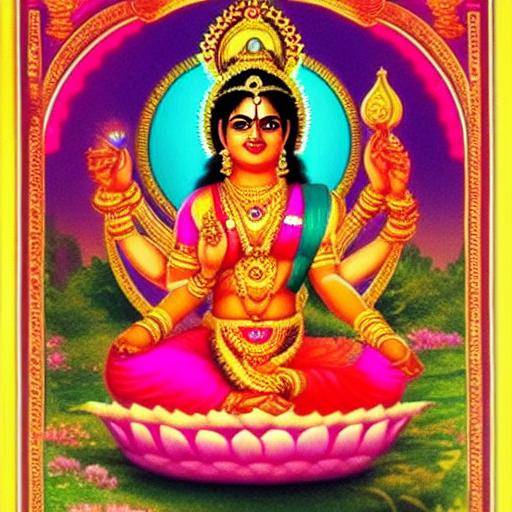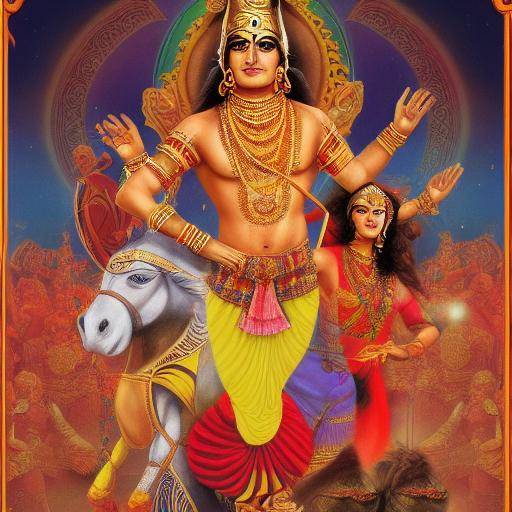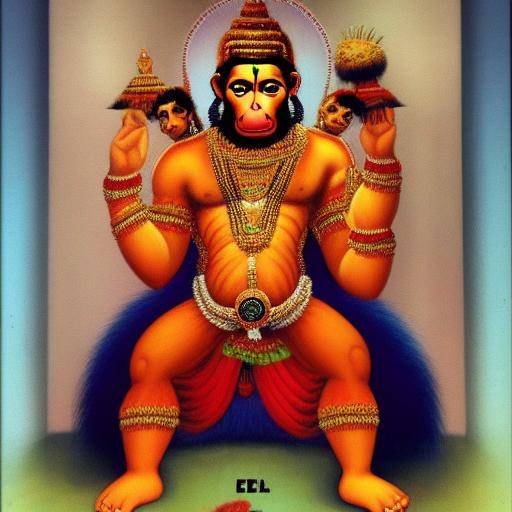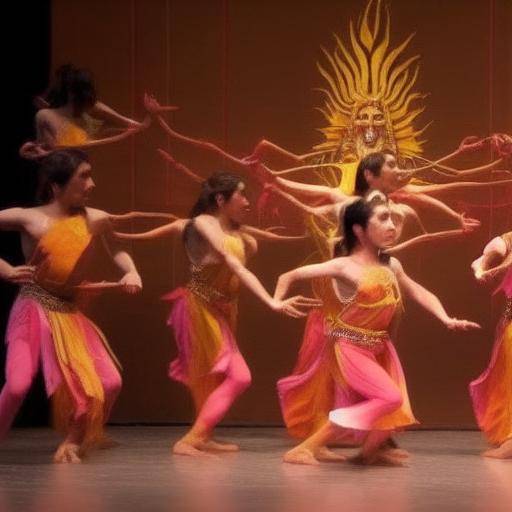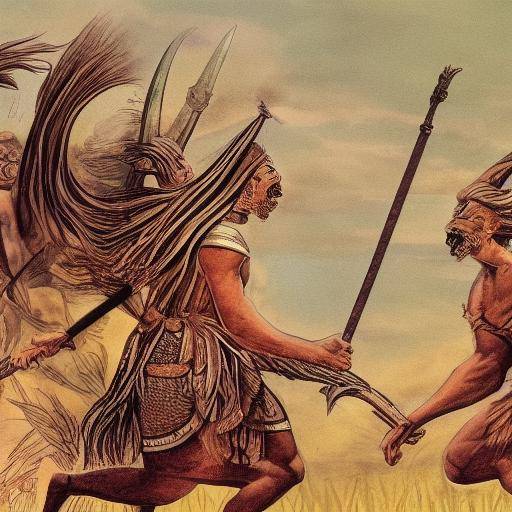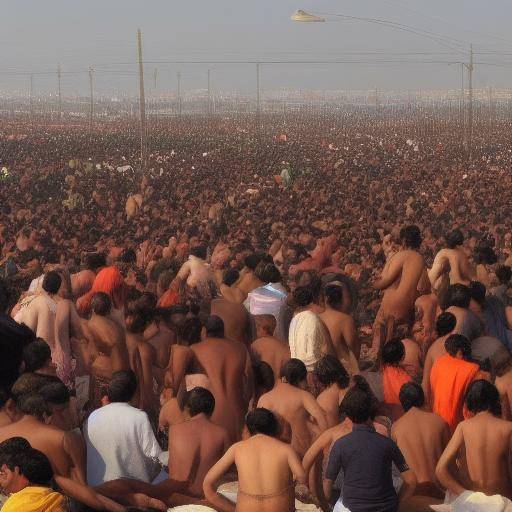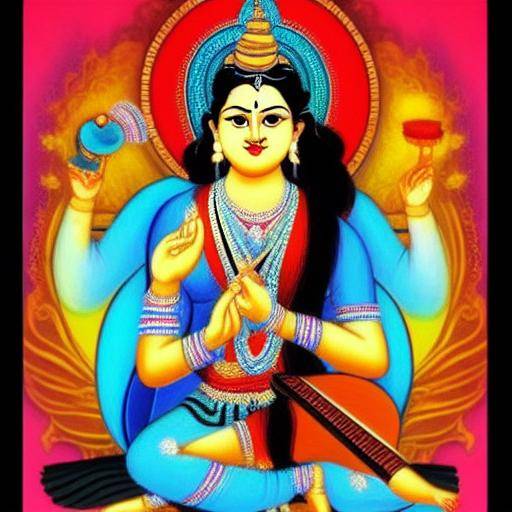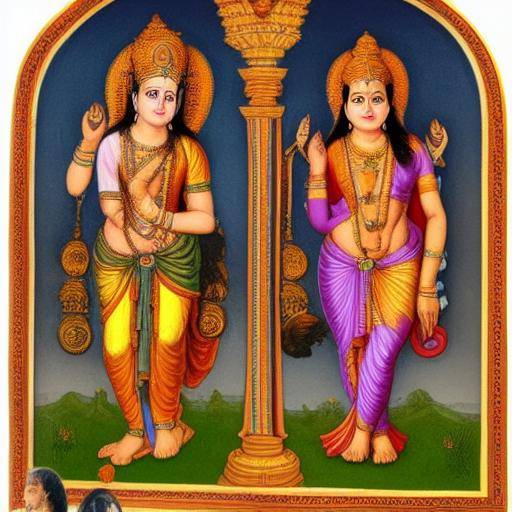
Hindu mythology is rich in fascinating stories that have intrigued people from diverse cultures and beliefs. Among the various prominent figures in this mythology, the Vishnu avatars occupy a prominent place. These avatars assume various forms to preserve the divine order and protect the world from darkness and chaos. Throughout this article, we will explore in detail the importance of Vishnu avatars as saviors and protectors in Hindu mythology.
Introduction
Vishnu's avatars are considered direct manifestations of the divine, sent to the earth to restore balance and harmony. Since time immemorial, these avatars have been venerated for their crucial role in the preservation of dharma (the cosmic order) and in the protection of the living beings of the evil forces. Throughout this article, we will explore in detail the history, meaning and contemporary relevance of Vishnu's avatars in Hindu mythology.
Origins and Historical Importance
The roots of Hindu mythology go back to millennia, and Vishnu avatars have been an integral part of this rich tradition. According to the sacred scriptures, Vishnu, the preserver of the universe, has descended to the earth in various forms to restore cosmic order in times of crisis. These incarnations, known as avatars, have played fundamental roles in the fight against evil and the protection of humanity.
Epic Episodes and Significant Developments
Hindu mythology presents numerous epic stories that illustrate the exploits and prowes of the Vishnu avatars. These stories, transmitted from generation to generation, have shaped the worldview of countless faithful and spiritual seekers. Epopeyas such as Ramayana and Mahabharata offer detailed accounts of the adventures and sacrifices of avatars, providing a holistic view of their divine imperatives and interactions with mortals.
Deep analysis
In exploring Hindu mythology, it is crucial to understand the significance of Vishnu's avatars in the worldview and religious practices of Hinduism. These divine incarnations embody eternal and universal principles, providing spiritual guidance and hope to those who seek to understand the deepest purpose of human existence. The detailed study of these avatars reveals a complex network of meanings and symbolisms that resonate in the lives of millions of people around the world.
Comparative analysis
While in Hindu mythology Vishnu's avatars represent the divine incarnation, the notion of "savers" is present in different religious and spiritual traditions. Through this comparative analysis, we will examine how the conceptions of saviors and protectors intertwine and differ in different cultures and beliefs, providing an enriching view of this universal archetype.
Parallel and Differences
Throughout history and various religious traditions, the figure of the "saver" has played a central role in understanding human transcendence and spiritual redemption. Through the comparison of Vishnu's avatars with other saviors venerated in different cultures, surprising similarities and substantial differences arise that enrich our understanding of human spirituality and the search for salvation.
Future Trends and Predictions
Looking forward, it is essential to examine how the understanding of Vishnu's avatars and the concept of saviors will continue to evolve and resonate with future generations. As the world experiences significant changes and unprecedented challenges, the relevance of these sacred archetypes acquires renewed importance. Its impact on society and spirituality will continue to be the subject of deep reflection and re-evaluation, providing a solid framework for enriching interreligious dialogue and the global understanding of spiritual diversity.
Conclusion
In this journey through the avatars of Vishnu as saviors and protectors in Hindu mythology, we have explored its historical significance, its role in the configuration of the Hindu cosmovision, and its relevance in a global context. As these divine figures continue to inspire devotion and study throughout the centuries, their lasting legacy offers valuable lessons of compassion, justice and protection that resonate in the heart of humanity.
Frequently asked questions
1. What are Vishnu's best known avatars?
Vishnu's best-known avatars are Matsya (the fish), Kurma (the turtle), Varaha (the wild boar), Narasimha (half lion man), Vamana (the dwarf), Parashurama (the warrior with axe), Rama (the divine prince), Krishna (the beloved shepherd) and Kalki (the white rider).
2. What is the purpose of Vishnu's avatars?
The main purpose of Vishnu's avatars is to preserve dharma (the cosmic order) and protect humanity from evil and chaos. Each avatar descends to the earth in critical moments to restore the divine equilibrium and lead mankind to righteousness and harmony.
3. How do Vishnu's avatars relate to the notion of saviors in other religious traditions?
Vishnu's avatars share similarities with the notion of saviors in other religious traditions, as they represent divine intervention to free humanity from suffering and lead it to spiritual redemption. These similarities reveal the universality of the human quest for salvation and the transcendental purpose in different cultures.
4. What is the contemporary impact of Vishnu's avatars on Hindu society?
In contemporary Hindu society, Vishnu avatars continue to play a fundamental role in religious practice, culture and spiritual identity. His stories and teachings continue to enrich devotion and understanding of the divine purpose in everyday life.
5. What is Vishnu's most popular avatar and why?
Krishna is considered the most popular avatar of Vishnu because of his role as a charismatic and compassionate divine being. His teachings in the Bhagavad Gita and his mischiefs in Vrindavan have made him a beloved and venerated figure in the Hindu tradition.
6. What is the main message that Vishnu avatars convey to humanity?
The main message conveyed by the avatars of Vishnu is that of justice, compassion and sacred duty. Through their lives and actions, they urge human beings to live according to spiritual principles and to protect righteousness and harmony in the world.
With this, we conclude our immersion in the fascinating world of Vishnu avatars, whose legacy endures as an eternal source of inspiration and wisdom in Hindu mythology and beyond.

